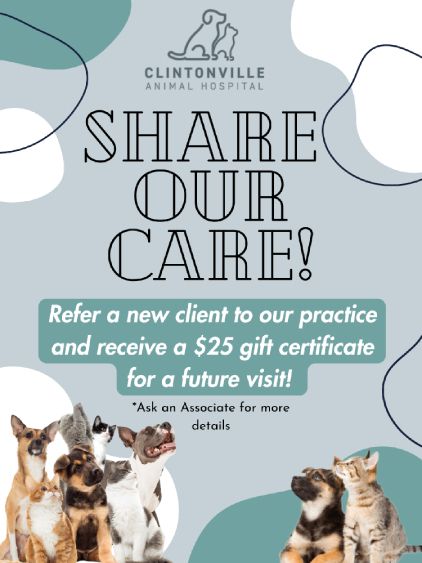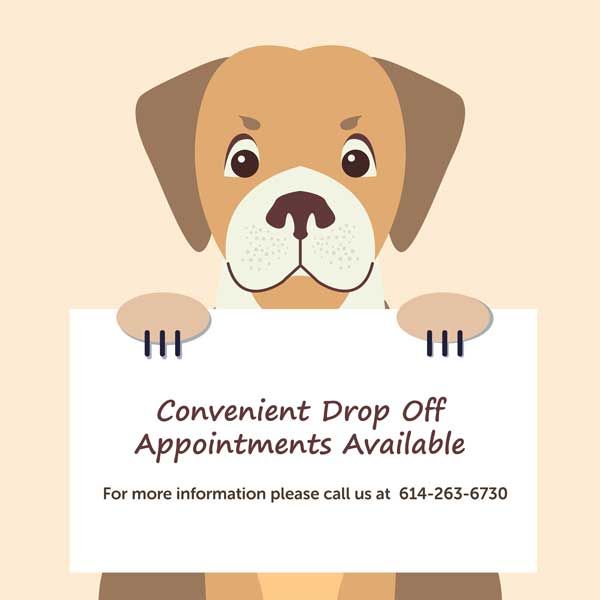We are thrilled to announce that our highly anticipated renovation project will commence this summer! The intent to improve patient, client, and team comfort and spruce up our working space has been on our to do list for the past several years. As we all know, 2020 came along and the remodel of 2020 has become the remodel of 2022!
The entire Clintonville Animal Hospital Team is excited to have locally owned Cleary Construction on board to make our vision a reality! This new remodel will allow us to add two additional exam rooms, including a comfort room for sensitive times, along with a treatment area on the first floor. We’re growing up, as well as out! A second floor will provide a much-needed, dedicated staff space for team collaboration, meetings, lunches, and personal meditation.
What does this mean for our wonderful patients and clients? We want to assure you that CAH will continue to offer the highest quality of veterinary care for both you and your four-legged friends throughout the entire remodel. During this construction project, practice processes will look a little different. To minimize any stress to the animals, our exam rooms and front desk will be relocated to a mobile office space in the parking lot. The current treatment area, surgeries, and x-rays will remain in the main building. Please know that clients are still welcome to join their pets for exams, but some procedures will be performed in the treatment area.
At this time, parking is expected to be available in the existing lot, but we will have a more concrete idea once the mobile office arrives. In addition to the lot, two-hour street parking is available in front of our hospital as well as along High Street. Should you require time to find parking, please do not feel a need to rush as our team can come get your pet while you locate a spot.
What are we asking of you? Like in any remodel, we understand that change can be stressful. This construction project is expected to take five to six months. Our team will do everything in its power to maintain a smooth and efficient pace, but wait times may be longer than normal. Paying for medications and food ahead of time is appreciated and will save time for clients when picking up these items.
We are so grateful for your patience and understanding during this exciting time. Please follow our Facebook page and Instagram for updates on the progress of the remodel. Should you have any questions, do not hesitate to call (614-263-6730) or e-mail (cah4pets@hotmail.com).
Happy Summer!!
Dr. Horne and the Clintonville Animal Hospital Team
Search Blog Post


The health of our team members, clients, and patients is our top priority. In light of the newest Coronavirus news, please know that we are doing everything we can to ensure the safety of every person and pet in our community. In an effort to keep everyone healthy, if you are not feeling well, or if you or your pet is coughing or has a fever, please call us from the parking lot. We are more than happy to come to get your pet from the car or bring medications out to you. We take pride in maintaining a safe and welcoming environment for our patients, clients, and team. We apologize for any inconvenience.
Just a reminder your pet cannot contract or spread COVID-19 (the coronavirus). The World Health Organization recently released a statement that “dogs previously held in quarantine can now be released.” Leading to a throwback of the old saying “WHO let the dogs out".
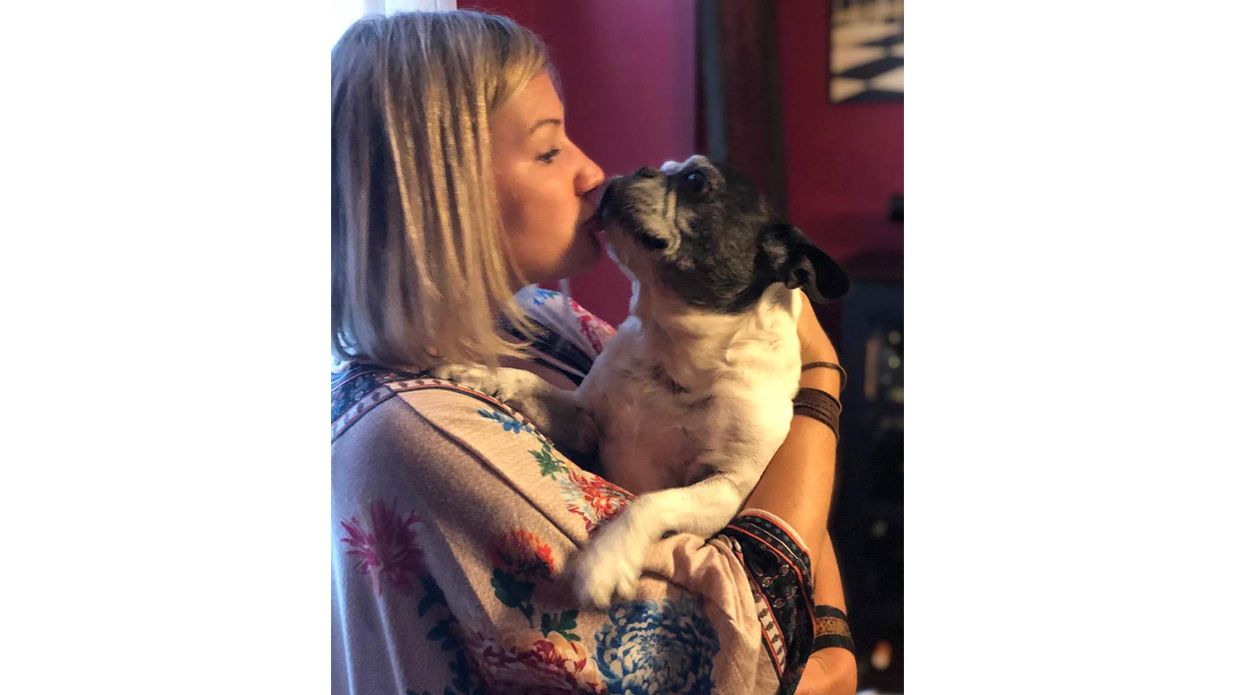
Written by Dr. Devon Horne, DVM
Losing a pet-It’s something that as a veterinarian, we deal with on an all too regular basis. We council clients on the matter, we console families when they need to make the decision to euthanize, and we grieve with them after their pet is gone. It becomes a different story, however, when the owners we are consoling are our own family, or the pet we are working on is our own four-legged family member.
After 4 years of daily delight, we recently lost our rescued French bulldog, Ollie (“Oliver Franklinton” to be exact). Ollie came to us shortly after the loss of another bulldog. While we weren’t specifically looking for a new dog, our hearts (and our Mastiff, Lola) were missing something. From the minute I met Ollie, my heart melted. He had the personality of a 120-pound dog tucked into a tiny, adorable 20-pound frame. He fit into our family almost immediately and somehow became my favorite little snuggle buddy. Several weeks ago, Ollie became acutely ill and we had to make the sad decision to say goodbye. We were fortunate that the decision was quite apparent, as I have watched others struggle to know when it’s time to make that difficult choice. While I regret having to make the choice, I do not regret the decision itself and feel blessed that in the veterinary world we have the opportunity to prevent unnecessary suffering.
The loss of a pet is something that members of the veterinary profession must deal with more often than someone not in the veterinary medical field, and regardless of whose pet it is, it is something that never gets easy. While we’re “not you,” have never had “your pet” or have never been through “exactly what you’re going through,” most of us have been in similar situations with our own pets. It comes down to the fact that there are no ifs, and, or buts about - losing a pet SUCKS! But I leave you with a silver lining thought that has helped me over the past few weeks:
If we are sad enough to miss them, then we were lucky enough to have loved them!

We’ve all been there; you’re prepping the holiday food and your dog jumps on the counter. The cat is stuck in the Christmas tree and ornaments are scattered about. You’re left thinking, what should I do now? Here are a few tips on how to have a smooth holiday with your furry friends.
Naughty list:
Chocolate. This is a big one during the holidays. Chocolate contains theobromine and caffeine, which are both toxic. Dark chocolate, baking chocolate, and cocoa beans are more toxic than white chocolate and milk chocolate. But all chocolate is a bad idea for your pet.
Xylitol. This is an artificial sweetener used in place of sugar. If you are using this in any of your baked goods this season, make sure that your pet does not get into it. Even just a small amount can be toxic. It can cause a drop in blood glucose levels, which may cause seizures or even liver damage.
Onions/garlic. Cooked, raw, or powdered, all are bad for your pet. These are all toxic and can cause nausea or even anemia.
Raisins/grapes. These are also toxic to your pet and can cause vomiting or even kidney failure.
Turkey/ham bones, skin, and scraps. Even the gravy made from the turkey is bad. The bones can be very harmful if ingested, possibly causing an obstruction. The skin and gravy are very high in fat and can cause pancreatitis. Be careful with seasoning on your turkey/ham as well, because as mentioned, garlic and onion powdered seasoning can be toxic.
Uncooked bread dough. If the dough contains yeast, the pet’s stomach can act like an oven causing the yeast to rise and release carbon dioxide, which may lead to gastric dilatation-volvulus.
Plants. European Mistletoe is toxic to both our feline and canine friends. American mistletoe, on the other hand, is not as toxic. If ingested, mistletoe can cause gastrointestinal irritation such as vomiting and diarrhea. Lillies are very dangerous for cats and can cause kidney failure. Poinsettias, contrary to popular belief, are not as dangerous as people think. They are still toxic though. These may cause mild mouth and stomach irritation, such as drooling, vomiting, or diarrhea.
Garbage. Keep your eye on the trash can, many of the above dangers may be in the bin.
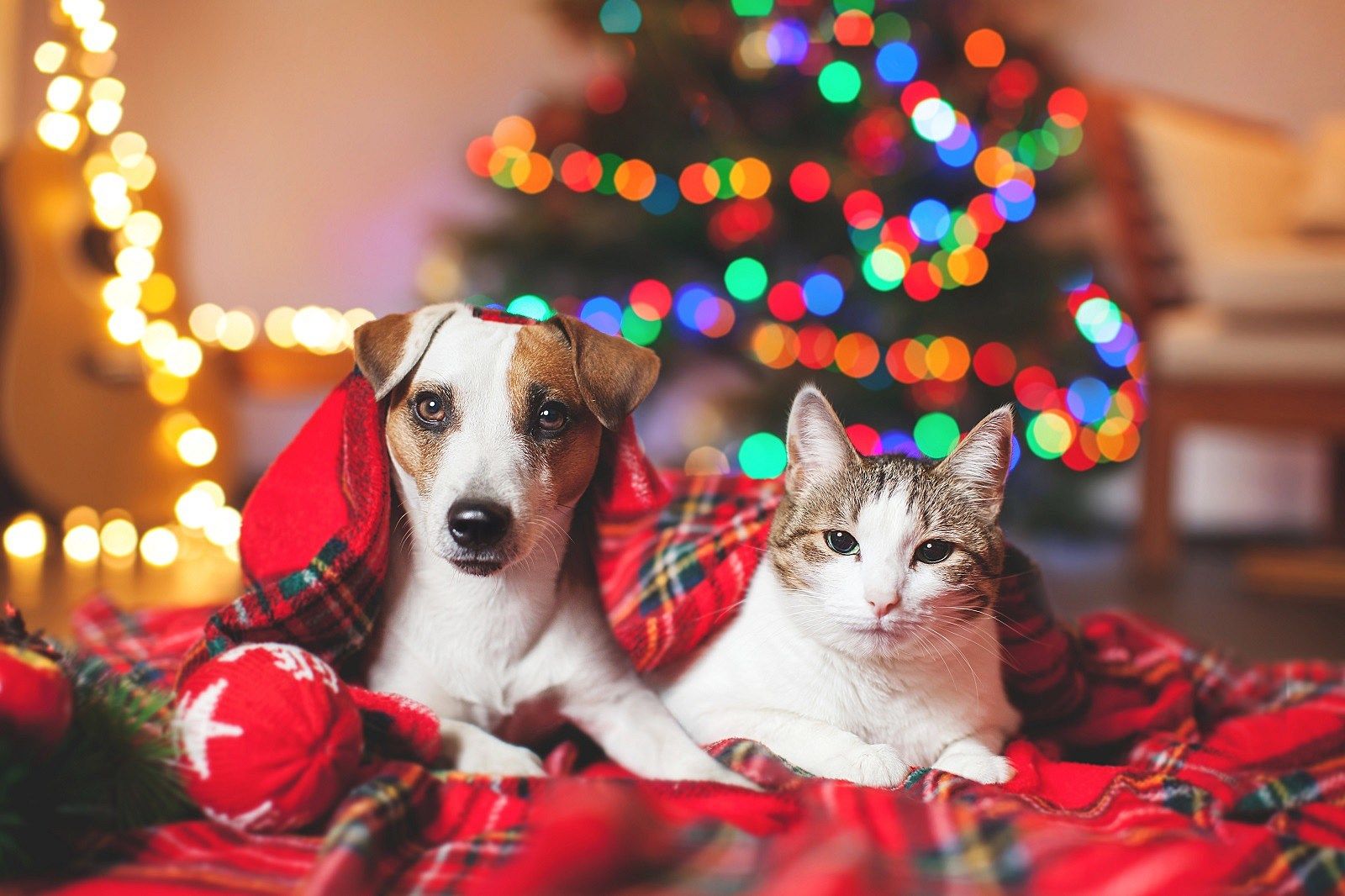
Nice list:
Meat. While a large amount is not good for them, a small amount can be. As long as it is unseasoned, not fatty meat, a small amount can be a nice little treat for your pet.
Veggies. Broccoli, cauliflower, celery, green beans, sweet potatoes, and pumpkin are all safe for your dog to eat in moderation. Make sure there is no gravy, butter, or artificial sweeteners used as previously mentioned.
Cranberries. Plain cranberries, not jelly, are safe for your furry friend.
Baked bread. As long as the bread is fully baked, and does not contain alcohol, or artificial sweeteners, a small amount is perfectly safe.
Cheese. We all know dogs love cheese, so a piece of cheese can be a safe tasty treat for your pet.

Decorating tips:
While an artificial tree is recommended in order to keep your pet from ingesting the pine needles if you do get a real tree to consider waiting to decorate. If you leave the tree bare for a few days your cat may lose interest in it and leave your ornaments alone.
Make sure you have a solid base. This will help avoid any tree tipping disasters.
Put foil underneath your tree. Cats generally don’t like the feeling or the sound of it and may find another napping spot.
Hang your ornaments with wire hangers and use pliers to tighten them around the branch. This way they are more secure and can withstand your cat’s curiosity.
Use safe wrapping techniques. Ribbons and yarn can be dangerous for your pet if ingested, so make sure to secure them or keep them out of reach.
Keep tinsel to a minimum, or avoid it. If ingested, it can be harmful to your pet.

Did you know that a group of twenty cats is called a clowder? Or that a cat was the mayor of Talkeetna, Alaska for 15 years. Or perhaps, that adult cats only “meow” to communicate with humans. Or maybe this one, “Cats are liquid because they can fit anywhere.” Fun facts, yes, but aspects of cats that are fascinating and enigmatic. Cats are creatures that amaze us as much as baffle us at time with their behaviors, patterns, and personalities. So, what does this have to do with your indoor kitty and its health? Simple. Cats are mysterious but making sure they live long healthy lives both indoor and out doesn’t have to be.
Cats are good communicators. They will let you know when they are hungry or when you need to clean the litter box, but they are also good deceivers. Cats tend to hide when they are in pain or uncomfortable. Many cats in need of a dental cleaning will still eat dry food despite a cracked tooth or possible mouth infection. Sometimes your kitty will begin to urinate slightly more or groom slightly less, a habit that appears benign, but could be an indicator of kidney disease or skin issues. Much like us, cats do not want to burden their owners and will continue with the status quo when they have an ailment. The best way to keep your kitty healthy and to show them you care is with a yearly or semi-annual visit to the vet.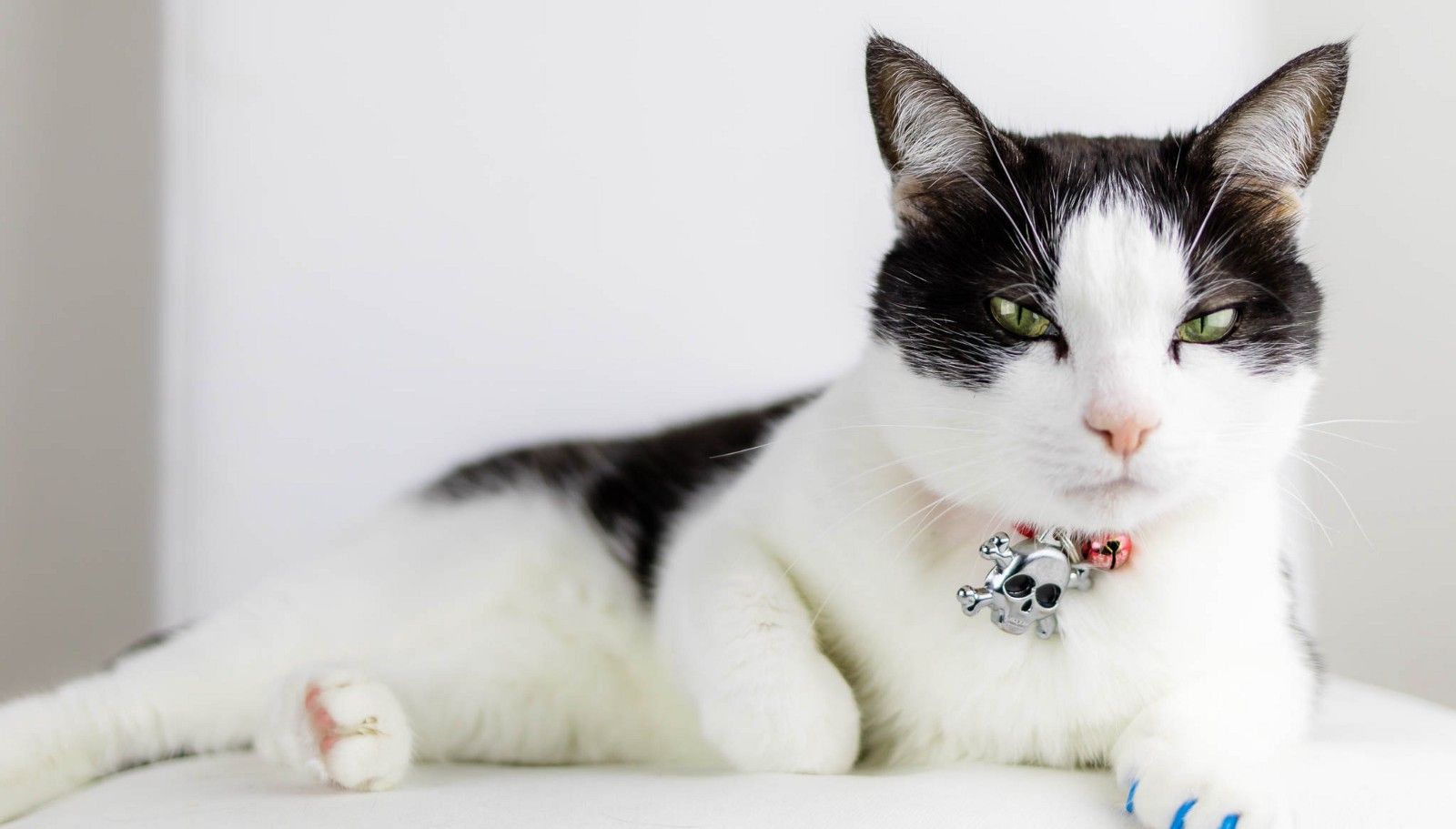
At the exam, your kitty will get vaccinations, an overall body condition examination, and an annual bloodwork & fecal screening. I know what you’re thinking, my kitty doesn’t appear unhealthy, why is this important every year? Well, we’ll break down each of these areas to explain why the annual is the kindest and best medicine for your furry friend.
First, we’ll look at vaccinations. The core vaccines, vaccines recommended to be updated regularly, for kitties are FDRCP and Rabies. FDRCP covers the following viruses: Rhinotracheitis, Calicivirus, and Panleukopenia (feline Distemper). All of these viruses are airborne and if not treated properly can cause severe illness, even death. A cat can catch these viruses at any age, during any time of the year. Being indoor doesn’t protect your pet from these viruses but being vaccinated yearly does. The Rabies vaccine is legally required for all pets in Franklin County. Going beyond that - if your pet was ever to escape your home via an open window or unaware maintenance person, having them vaccinated would give them some protection from encounters with rodents, such as raccoons, or unvaccinated cats.
Second, we consider the overall body condition exam. We love our kitties and sometimes that love may look like an extra helping of treats or the occasional piece of bacon on the sly. The best way to know if we’re showing our kitties the proper love is to know where they are at physically, by having a veterinarian thoroughly evaluate them. Then we as owners can be the cheerleaders of their health. Is your kitty’s coat shiny and clean? Do they vomit hairballs? Do they play a lot or are they sleepy a lot? Do they drink a lot of water? Has any of this changed with them in the last week or month or year? These are questions we may not ask ourselves about our indoor cat, but a veterinarian will consider these when checking them over. Many indoor cats are overweight due to inactivity and diet, which can lead to diabetes. Some indoor cats have undiagnosed health conditions associated with vomiting, or their skin, or their bathroom habits. Tracking them every 6-12 months with a vet visit, helps document their weight, physical appearance, and overall well-being in a way that will help you as the owner determine if they need medical or environmental intervention.
Third, and finally, is the importance of bloodwork and fecal screenings for our indoor friends. Remember earlier in this article, when I said, “Cats are liquid.” Well maybe, you’ve heard this one, “still waters run deep.” Cats are still waters, meaning they won’t tell you if something is going on internally. A physical exam can only go so far, but bloodwork and fecal testing will give you some indicators of diseases or conditions within the body or parasites in the stool. Bloodwork looks at kidney, thyroid, and liver function, chemistries for the body, and blood counts. It creates baselines, maps of how your kitty ages and how their body changes. Fecal screenings let us know if there is a parasite in your kitty’s stool from eating something off your shoe or off the carpet, unbeknownst to you the owner. These diagnostics allow you to treat you cat with proper medicine if problems arise and help keep them the healthiest they can be without making them feel like a burden.
So, what have we learned today friends, other than cats are awesome and can hold office? We as the owners have the power to do the kindest thing for our pets and the kindest thing can be the simplest thing, yearly exams for our indoor kitties. Whether you have one or a clowder, one visit a year can make all the difference in keeping them healthy so they can keep entertaining and mystifying us for years to come.
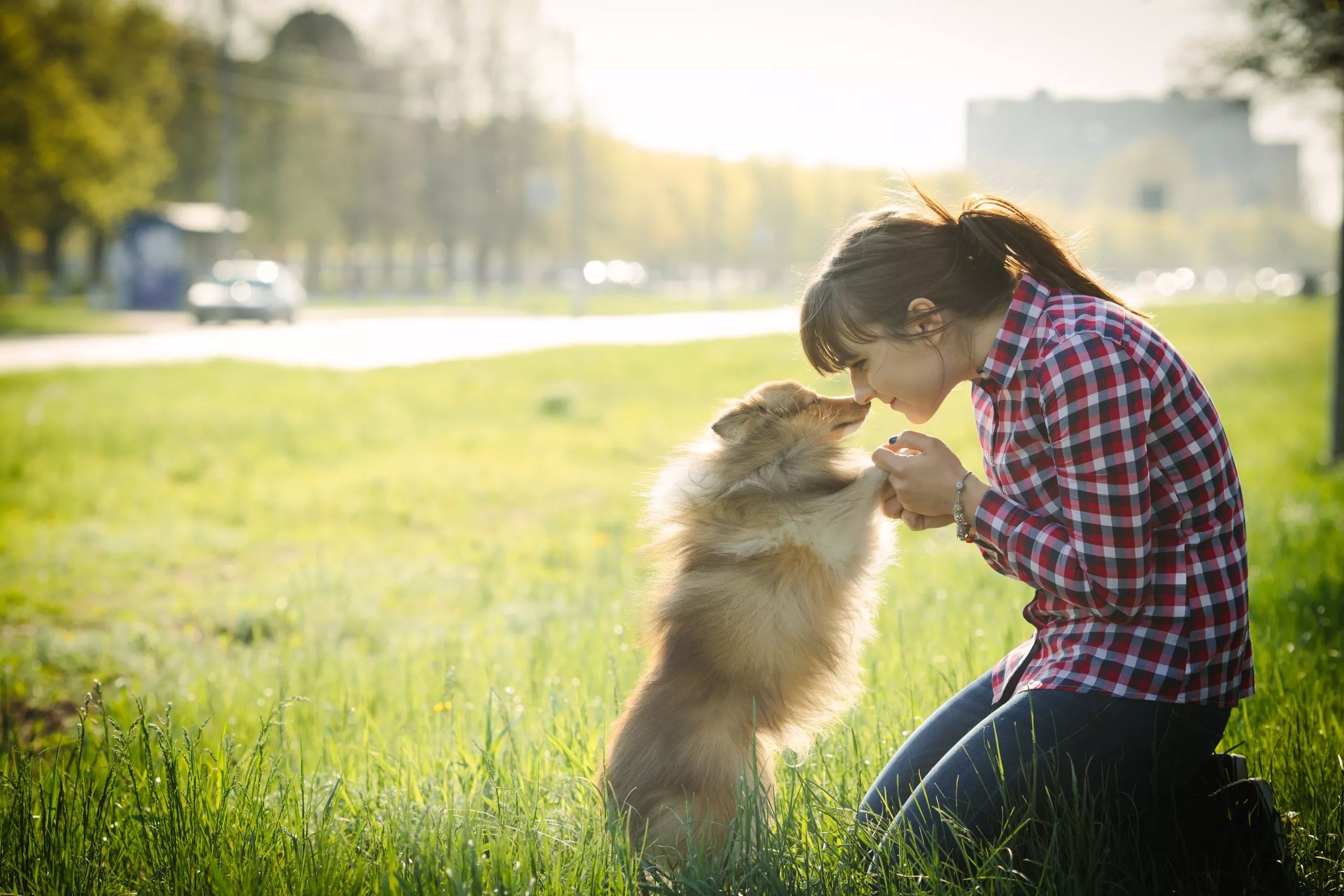
How does your pet speak to you? Is it a bark when they’re happy or meow when they’re hungry? Possibly your pet brings you a favorite toy for you to enjoy. At night, when you’ve had a long day, does your pet cuddle up next to you and remind you that you are loved? Your pet is there for you when you need them, but do you hear everything they’re saying? Do you always know when something is wrong? Our pets are fantastic communicators but sometimes our furry friends can’t tell us with a look or wiggle about what is important regarding their health. When your dog or cat can’t “speak” you have an opportunity to be the loudest voice for them and their health through Wellness Blood Screenings.
What are Wellness Blood Screenings you are probably asking? Wellness Blood Screenings are a series of tests that help to create baselines for a pet’s yearly bloodwork and can help detect subtle changes in your pet’s health and can potentially assist in the diagnosis and treatment of various diseases. Without annual screenings, 1 in 7 adult pets, 1 in 5 senior pets, and 2 in 5 geriatric pets remain undiagnosed for conditions and diseases that could have potentially been treated proactively. Therefore, it is paramount to include annual screenings along with annual vaccines when our furry friend comes in for a yearly exam.
What are these tests screening for you may wonder? Let’s delve further into each test and what information is revealed to the doctor.
Complete Blood Count or a CBC, is a test that measures the type of cells and components that make up a sample of blood. The types of cells and components that are being evaluated are Red Blood Cells, White Blood Cells, Hemoglobin, Hematocrit, and Platelets. This test can distinguish the size, shape, volume, and development stages of the cells in the blood. But what is the importance of the different cells and components?
Red blood cells (RBCs) carry oxygen to the body and when the doctor evaluates the RBCs they are looking for the number present in the blood. If a low count of RBCs is noted it can be indicative of anemia (lower than normal count of cells) or other issues.
Hemoglobin (HB or Hgb) is a protein that helps attach oxygen to RBCs allowing the RBCs to deliver oxygen to the body. If there are abnormalities seen, it may be sign of oxygen depleted blood, and another indicator of anemia.
Hematocrit (Hct) determines the percentage of RBCs to the plasma, fluid component, in your blood. Dependent upon the level of hematocrit it may indicate to a doctor if a pet is dehydrated or malnourished, among other diagnoses.
Platelets are the component in the blood that contributes to clotting. When a doctor looks at platelet count, variations may indicate more serious conditions like cancer.
Chemistries using blood serum help the doctor to assess organ function. The chemistries look at kidney and liver function, blood proteins, thyroid hormone levels, glucose, and electrolytes in the blood. Each of these areas can be an indicator of a healthy pet or a pet in need of diet change, medication, or more stringent care.
Urinalysis is a test that includes many components that allow the doctor to determine if inflammation or infection is present in the urinary bladder. It can also let the doctor know how well the kidneys are concentrating the urine, if crystals (which can form bladder stones) are present, if the urine has a higher concentration of glucose, or if bacteria are present.
Each of these tests focuses on a distinct part of the inside of your pet and let’s the veterinarian obtain an accurate picture of your pet’s health. Without them, baselines are not created in your pet’s medical history, and crucial information about their internal care may be missed. It is the most effective way to provide whole body care for your furry loved one.
Wellness Blood Screenings are easy and can be done at every annual visit. So next time your pup or kitty looks in your eyes, know they are saying “Thank you” for being their advocate when it comes to their present and future health with Wellness Blood Screenings. They know you love them; Wellness Blood Screenings are just another way of “speaking” it.
Authors: Liz Thomas, RVT and Molly Hafer
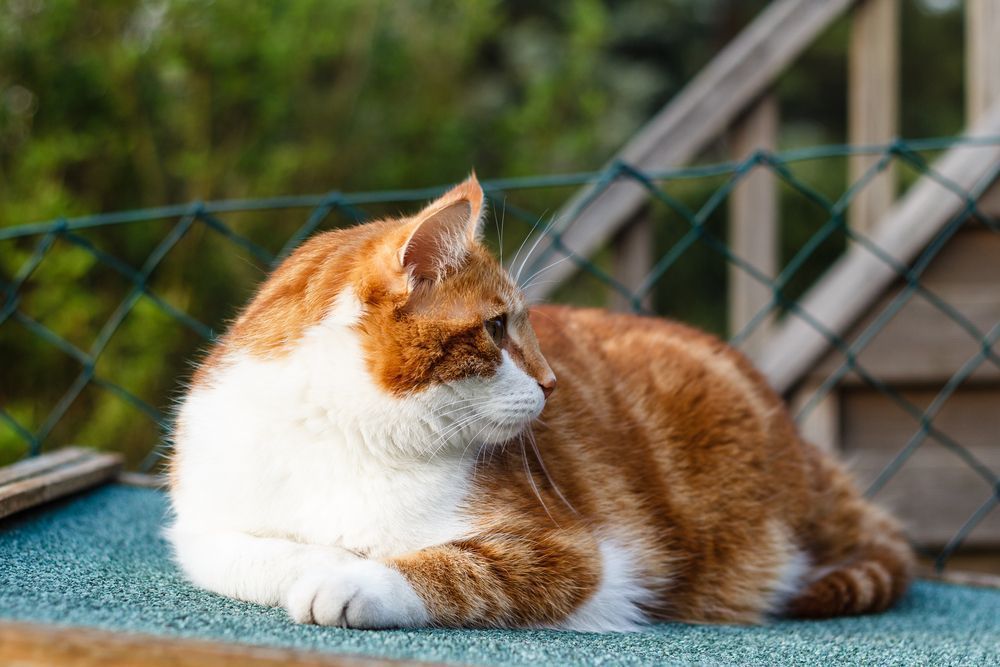
Part of owning a pet, aside from loving your pup or kitty, and providing them a nurturing home, healthy diet, and stimulating environment, is providing for their physical well-being with semi-annual or annual exams. At these appointments, your furry friend is given a full health check-up, vaccines are updated, and a heartworm test is performed, with pats and treats included. But some owners may leave their veterinary office wondering, “what are heartworms, how does my pet get heartworm disease, and why is it important for my pet to be screened yearly and treated monthly to prevent this disease?” Today we are going to delve into these questions to better understand the causes and reasons for protecting your pet from heartworms.
The “What” of Heartworms
Heartworms, or Dirofilaria Immitis, are internal parasites that can infect both dogs, and to a lesser extent, cats (infections in cats are less frequent, typically involving fewer parasites, and are hard to detect). These parasites are transmitted through larvae (immature worms) via the bite of an infected mosquito. There are more than seventy species of mosquitoes capable of transmitting heartworms, making pets highly vulnerable to infection. Once the larvae have been transmitted to the host, aka your pet, these larvae mature as they travel through the tissue until eventually finding their new home and residing in the heart and arteries of the lungs of your pup or kitty. These worms can mature, or grow, to the length of 5-6 inches in male worms and 10-12 inches in female worms. Once the worms have matured and established occupancy in your pet’s heart and lungs, they will seek to mate and produce microfilaria (early-stage larvae), which will then be dispersed into your pet’s bloodstream. When a mosquito stops to make a tasty treat of your furry friend, they will become infected with the microfilaria, and go off to re-initiate the life cycle of the Heartworm.
The “How” of Heartworm Disease
Once your pet has been infected with heartworms it will result in a clinical disease as the number of worms increases in the vessels and the heart of your pet. Initial signs that heartworms are present may include panting, coughing, and a decreased tolerance for exercise. If the disease is allowed to progress unchecked, it can lead to heart arrhythmia (irregular heartbeat), sudden collapse, and eventually, heart failure. Retroactive treatment for an active infection involves repeated anti-parasitic injections, lengthy cage/crate rest, extensive cost, and a good deal of discomfort for your pet.
The “Why” of Heartworm Screening and Preventatives
In 2018 alone, there were 2,528 reported cases of canines positive for heartworms in Ohio, with 274 of those cases occurring in Franklin County. Ohio is no stranger to the mosquito or the larvae it may carry. At your semi-annual or annual appointment, it is important to screen your pet with a heartworm test to detect possible heartworm infections. It is also important to administer routine heartworm preventative medication to protect your pet from infected mosquitos. Due to the moist climates in Ohio, it is recommended to keep your dogs, and occasionally cats (routine prevention should be considered for kitties with a high risk of exposure to mosquitos), on preventatives year-round to keep them safe. There are a variety of preventative options, from chewable to topical to injectable, that can be used to keep your furry friend safe. Your veterinary doctors and staff can discuss the options to find the best fit for you and your pet.
Heartworms mean business and investing in protecting your pet through proper screening and preventatives, is another way of providing the best and most loving care for your pet. And you know what they say, an ounce of prevention is worth way more than a pound of cure to you and your fur-ever friend. For more information give our experienced team at Clintonville Animal Hospital in Columbus, OH today (614) 263-6730.



